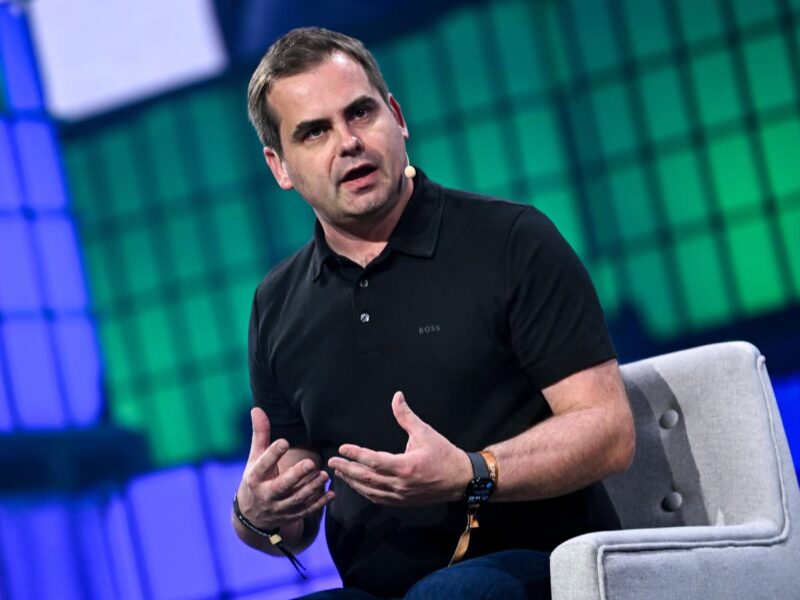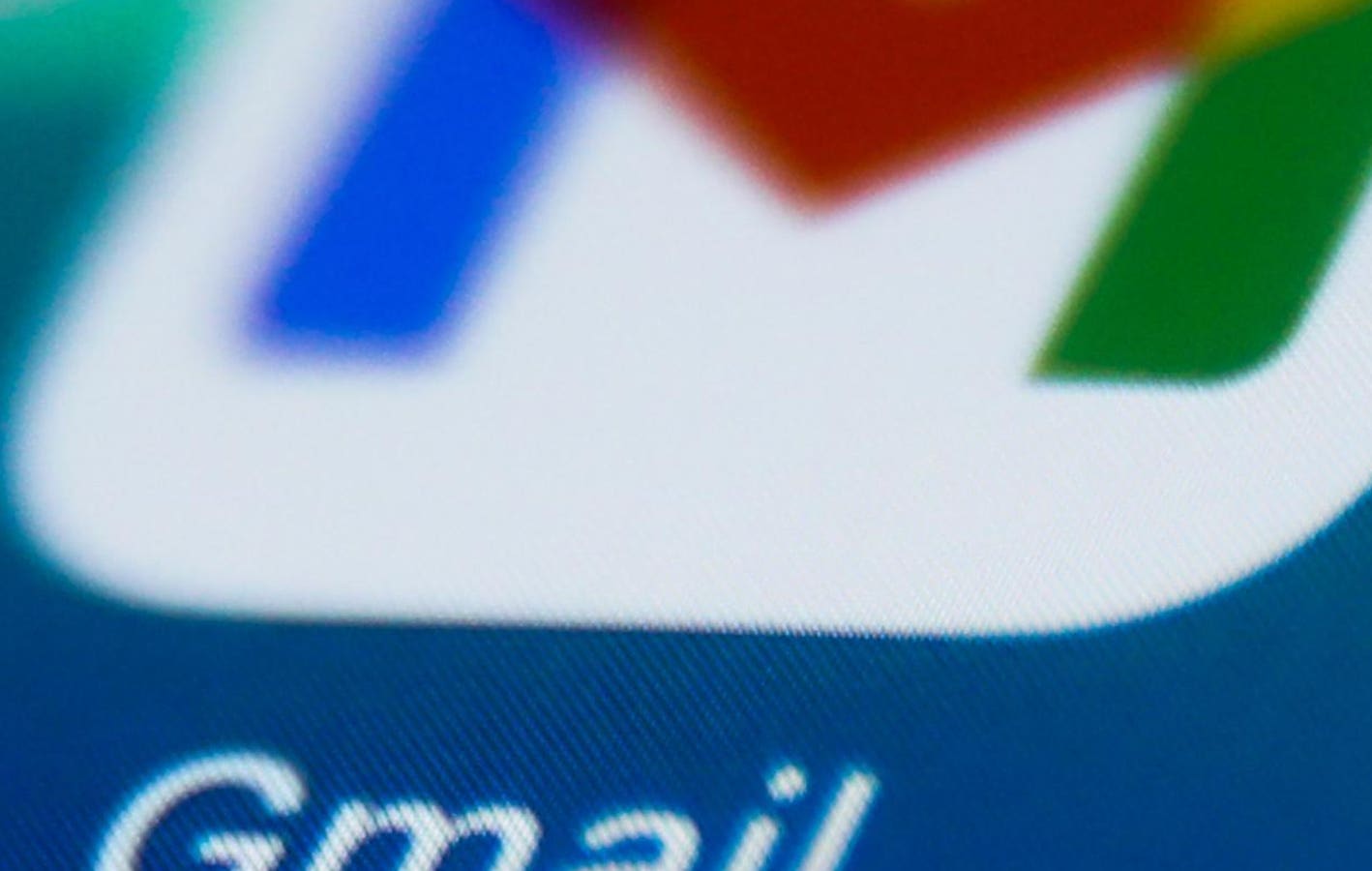Lisbon , Portugal – 12 November 2025; Jaroslaw Kutylowski, CEO & Co-Founder, DeepL on Centre Stage during day two of Web Summit 2025 at the MEO Arena in Lisbon, Portugal. (Photo By Ramsey Cardy/Sportsfile for Web Summit via Getty Images)
Sportsfile via Getty Images
There aren’t many European companies which can be heralded as “European Champions” in the AI field. DeepL is certainly one of them. This German company, launched in 2017, in a few years managed to put on the market a translation service, based on artificial neural networks, that rivals or even outperforms those of Google, Microsoft and other much bigger American companies.
It is now expanding its offering beyond translation with the launch of DeepL Agent, an AI agent for businesses which, it claims, will help companies automate and streamline repetitive and inconsistent tasks. Meanwhile, DeepL CEO Jarek Kutylowski also joined the Strategic Group for Technology and Innovation of the federal German government to help shape the country’s AI policy.
It felt like a perfect time, then, to catch up with Kutylowski, which I had the chance to do a few days ago at Lisbon’s Web Summit, which this year attracted more than 70,000 participants across the three days of the event. We discussed a wide range of topics, from the EU’s AI Act (which Kutylowski fears could stifle innovation) to competition from other startups’ large language models in the translation market.
Expanding Beyond Translation
DeepL has always prided itself on focus. The company’s singular dedication to translation has been cited as a key reason for its excellence in the field. So how does the launch of DeepL Agent fit with this philosophy?
Kutylowski acknowledges this is “a fair question, that we have been also debating quite a lot internally.” He believes focus is important and should be maintained, but argues that DeepL has grown large enough to pursue multiple initiatives simultaneously. “Part of the problem with technology and AI technology, in particular, right now, is that there are a lot of new things coming up and people get excited about it. But at the end, it’s not completely clear whether that really works and that really brings value,” he explains.
The decision to expand came partly from customer demand. “Our customers have also been reaching out to us,” Kutylowski says. “We know that you know what you’re doing with AI. Can you help us also in other areas? Because we are getting swamped by inquiries from other companies, but we don’t really trust them.” The new direction combines DeepL’s internal drive for innovation with a response to customer needs.
Competing in the Age of ChatGPT
Even as DeepL expands its services, it faces intensifying competition in its core business. All the main chatbots can now translate text, often with impressive results. Kutylowski admits that “within the casual ‘today I need to like quickly translate something’ use case, there is indeed more competition. And that’s totally fine.”
But he sees DeepL’s competitive advantage in a different arena: mission-critical, enterprise-scale translation. “Where I think really the big difference lies now, and where we are working on, especially with our bigger customers, is looking at those super mission-critical use cases for those customers, those that are at the core of their business and that are really scalable,” he explains.
He offers the example of life sciences companies conducting clinical trials worldwide, with “thousands of pages of documentation that needs to be translated into each and every country in which they are selling this drug into or trying to get it approved.” In these scenarios, “the best level of accuracy, plus some levels of quality control and transparency, legal compliance, really matters. And I think there’s still an immense market for this.”
The European Advantage
Being a European company may provide DeepL with a competitive edge, particularly when it comes to data security and geopolitical concerns. “For a lot of companies based in Europe, I think this geopolitical question has become more important, nowadays,” Kutylowski says.
Companies must balance choosing the best solution with ensuring they have a reliable partner. “You want to use the best solution out on the market, but you also want to make sure that you have a partner that you’re going to be able to work with. Without, I don’t know, any kind of tariffs getting in the way or something like this,” he says.
The concern extends beyond Europe. “Within Asia, there’s also obviously an awareness that, maybe, you don’t want to make yourself too dependent on the U.S., which is not the most reliable partner right now,” Kutylowski adds.
The AI Act Dilemma
Kutylowski has been notably critical of Europe’s AI Act. His concerns center on what he sees as misplaced priorities in risk assessment.
“It depends a little on what we are more worried about,” he explains. “If we are more worried that the decisions that are going to be made by AI are going to endanger our society, and that we’re going to lose all of our privacy. If this is our main fear, then the AI Act makes sense.”
But Kutylowski’s own fears lie elsewhere. “My bigger fear, actually, if I’m thinking about risk management, is that we’re not going to build the next level of technology, and we’re not going to enable our economies to be competitive within a global framework.” He paints a stark picture: “If American or Chinese companies become, like, 50 percent faster at everything, comparing to European companies, that’s not going to work well for our economies.”
Navigating the Job Market Transformation
The conversation inevitably turned to concerns about AI’s impact on employment—concerns that partly motivate the EU’s cautious regulatory approach. Kutylowski acknowledges these worries are warranted but sees them as part of a familiar pattern.
“I think the job market is going to go through a transformation. But this is not really that much different from any of the other technological revolutions that we had in the past, like the industrial revolution,” he says. Speaking from personal experience as a software engineer, he finds the changes exciting: “Developing software right now for me is so much more fun because you don’t have to do the grunt work, things I already did hundreds of times. It feels like I’m actually using my time in a more productive way.”
Still, he doesn’t minimize the challenges ahead. “It is a change that a lot of people will struggle to go through, and they will need to find the jobs that they’re good at, and where their human expertise is going to exceed whatever AI can do. And I acknowledge the fact that for the society, it’s going to be not an easy path to go through.”
But the key issue, for Kutylowski, is that Europe cannot opt out of this transformation unilaterally. “We just have to see it through a global context. If we could agree, as a world, that we’re not going to go there, then I think not going there would be an option. But I don’t think that this is realistic. If not here, this is going to happen in maybe other continents, other places. And therefore we have no choice but going with that.”
As DeepL navigates the intensifying AI competition, Kutylowski words offer interesting food for thought about the difficult choices facing European tech companies and policymakers alike.









